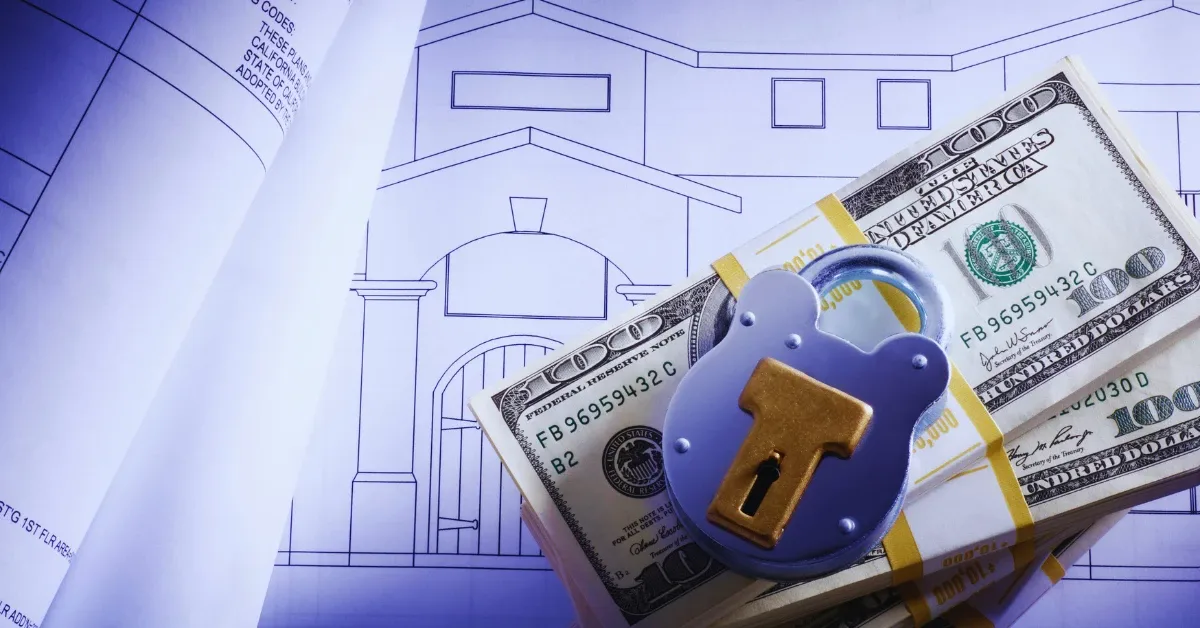Can Landlord Deduct Cleaning from Security Deposit?
A landlord can deduct cleaning costs from a security deposit if the rental property is not returned in the same condition as when the tenant moved in, minus normal wear and tear. This ensures the property is maintained and ready for new tenants.
If a tenant leaves a rental property dirty, damaged, or with things to be fixed, a landlord can hire someone to clean or fix it and deduct the cost from the tenant’s security deposit. However, the landlord must provide the tenant with an itemized list of the repairs or cleaning conducted and its costs.
This must be done within the timeframe set by state law. If the cost of the cleaning exceeds the security deposit, the landlord can charge the tenant an additional fee. It’s important for tenants to take care of their rental properties to avoid unnecessary cleaning or repair costs.

Understanding The Landlord-Tenant Relationship And Security Deposits
As a renter, one of the most significant costs you will face is the security deposit when moving into a new leased location.

It is essential to have an understanding of the security deposit, how it works, and the relationship between landlords and tenants.
We will review these topics to help you make informed decisions and protect your rights as a tenant.
Overview Of The Relationship Between Landlords And Tenants
Understanding the relationship between landlords and tenants is crucial when it comes to security deposits. Here are the key points to keep in mind:
- Landlords have a right to request a security deposit from their tenants as a form of collateral in the event of damage or unpaid rent during the tenant’s stay.
- Tenants are obligated to pay the agreed-upon security deposit amount upfront, in addition to their monthly rental fee.
- Landlords are required to return the security deposit, minus any legal deductions, to the tenant at the end of the lease term.
Explanation Of What Security Deposits Are And How They Work
Security deposits are funds held by a landlord as collateral against potential damage to the rental property caused by the tenant. Here’s what you need to know:
- The security deposit is typically a refundable amount that tenants pay upfront.
- Landlords are allowed to deduct from this deposit to repair any damage the tenant caused or to cover unpaid rent during the lease term.
- At the end of the lease, landlords must either return the full security deposit or provide an itemized list of legal deductions.
What Can Landlords Deduct From Security Deposits?
Landlords are permitted to make deductions from the security deposit to cover costs associated with damage caused by the tenant. Here are the key points to keep in mind:
- Landlords can deduct reasonable amounts for cleaning and repairing damages that exceed normal wear and tear.
- Landlords must provide an itemized list of deductions and provide evidence to justify each expense.
- Landlords may not use the security deposit to cover unpaid rent or to bypass the legal eviction process.
How To Ensure The Security Deposit Is Returned
Tenants must take certain steps to ensure the return of the security deposit. Here are the key points:
- Tenants should conduct a move-in inspection and document any preexisting damage before moving in.
- Tenants should keep the unit clean and in good condition throughout the lease term.
- Tenants should conduct a move-out inspection with the landlord and maintain records of the inspection and any repairs made.
Understanding the security deposit and the landlord-tenant relationship can help renters prepare for their lease term’s costs and protect their rights as a tenant.
Knowing what landlords are allowed to deduct from the security deposit and how to ensure its return can help tenants avoid legal issues and financial disputes.
Understanding Cleaning Responsibilities And Security Deposits
As a landlord, it is essential to understand the cleaning responsibilities of yourself and your tenants, especially when it comes to security deposits.
Here are the key points to keep in mind:
- Landlords are responsible for maintaining the cleanliness and upkeep of common areas, such as hallways, stairwells, and elevators.
- Tenants are responsible for keeping their rental units clean and maintaining basic hygiene standards.
- Both parties must follow any cleaning guidelines outlined in the lease agreement.
- Failure to uphold these responsibilities can result in deductions from the security deposit.
Connection Between Cleaning And Security Deposits
Cleaning and security deposits are closely connected. As a landlord, here are the key points to keep in mind:
- Security deposits can be used to cover damages or cleaning costs beyond normal wear and tear.
- Tenants are entitled to receive a detailed explanation and itemized list of any deductions from their security deposit.
- Landlords must ensure that any deductions from the security deposit are reasonable and necessary.
- Documenting the condition of the rental unit before and after a tenant’s lease can help justify any deductions from the security deposit.
Remember that understanding the connection between cleaning responsibilities and security deposits is crucial for maintaining a positive landlord-tenant relationship.
By clearly outlining these responsibilities in the lease agreement and documenting any issues that arise, you can avoid disputes and potential legal issues down the line.
When Can A Landlord Deduct Cleaning Fees?
When it comes to renting a property, one of the most important aspects is the security deposit.

This deposit is collected by the landlord at the beginning of the lease and is used to cover any damages or unpaid rent at the end of it.
However, many tenants wonder if landlords can legally deduct cleaning fees from the security deposit.
Defining When Cleaning Deductions Can Be Legally Made From Security Deposits
In general, cleaning deductions from a security deposit are legal as long as they are supported by evidence and are not deemed excessive.
However, landlords cannot automatically deduct cleaning fees from a security deposit. They must adhere to certain guidelines to do so.
Explaining The Circumstances Under Which Landlords Can Make Deductions For Cleaning Fees
Here are some circumstances under which a landlord can make deductions for cleaning fees:
- If the tenant has left the property in a state of disarray, with rubbish or items left behind that require professional cleaning services.
- If there are damages to the property due to neglect, beyond what would be considered normal wear and tear.
- If the tenant has violated the lease agreement by smoking in the property, owning pets in a no-pet property, or other similar breaches.
- If the tenant has not returned the keys after vacating the property, which can lead to an additional cost for the landlord to change the locks.
It is important to note that landlords cannot deduct cleaning fees for normal wear and tear.
This includes cleaning carpets after normal use and painting walls to cover up scuffs or marks.
Landlords can legally deduct cleaning fees from a security deposit as long as the circumstances warrant it.
However, they must provide evidence to support such a deduction, and the fee must be reasonable and not excessive.
As a tenant, it is key to understand the standard of cleaning required and ensure that the property is left in the same condition as it was at the start of the lease.
Frequently Asked Questions Of Can Landlord Deduct Cleaning From Security Deposit
Can Landlords Deduct Cleaning Fees From Security Deposit?
Yes, landlords can deduct cleaning fees from security deposits if tenants leave the rental unit dirty or damaged beyond normal wear and tear.
How Much Can Landlords Charge For Cleaning Fees?
Landlords can charge reasonable cleaning and repair fees based on the extent of the cleaning required and the actual cost of repairs.
What Constitutes Normal Wear And Tear?
Normal wear and tear refers to the natural deterioration of a property that occurs over time even with reasonable use, and landlords cannot charge tenants for it.
What Actions Can Tenants Take If They Disagree With The Cleaning Fee Deductions?
If tenants disagree with the cleaning fee deductions, they can request an itemized list of charges, provide evidence of any disputes, and take legal action if necessary.
Conclusion
The tenant-landlord relationship can become contentious when it comes to security deposit deductions.
Generally, a landlord may only deduct cleaning costs from a security deposit if the tenant left the rental unit unclean beyond reasonable wear and tear.
Landlords must provide detailed documentation and itemized invoices to support their deductions.
Tenants should keep track of the rental condition upon move-in and exit to prove their innocence.
It’s essential to understand the laws governing security deposits in your area to avoid conflicts and minimize financial losses.
For both landlords and tenants, communication is key.
It’s better to resolve disputes through amicable negotiations rather than legal means, which could be costly and stressful for both parties.
Understanding your rights and responsibilities is crucial for a harmonious landlord-tenant relationship.